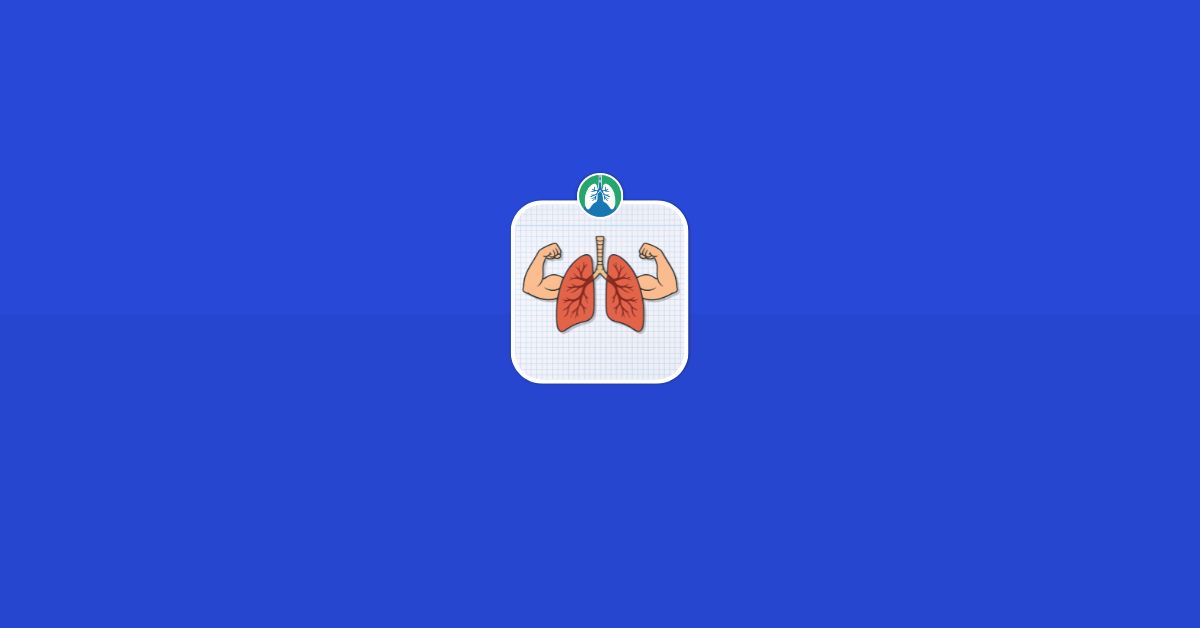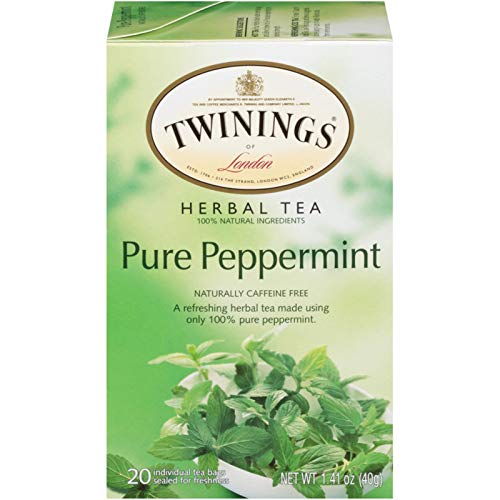Did you know your lungs take in around 20,000 breaths a day, without you even thinking about it? But just because breathing is automatic doesn’t mean your lung health should be taken for granted.
Whether you’re recovering from a respiratory illness, trying to bounce back after quitting smoking, or simply looking to breathe easier as you age, there are natural ways to give your lungs a boost.
In this guide, we’re diving into the science-backed (and totally doable) habits that can help support and strengthen your lungs, from what you drink to how you breathe.
Let’s get into the simple daily choices that can make a powerful difference.
Download our free guide that has over 100+ of the best tips for healthy lungs.
Natural Ways to Strengthen Your Lungs
- Drink Green Tea Daily
- Eat More Berries
- Get Enough Vitamin D
- Add Turmeric or Curcumin to Your Diet
- Eat Tomatoes and Apples Regularly
- Supplement with Omega-3 Fatty Acids
- Stay Hydrated with Herbal Teas
- Increase Your Magnesium Intake
- Practice Deep Breathing or Diaphragmatic Breathing
- Exercise Regularly
Watch this video and keep reading to learn more about the best natural ways to strengthen your lungs and increase lung capacity over time.
1. Drink Green Tea Daily
Green tea isn’t just a cozy beverage—it’s a lung-loving powerhouse. Packed with catechins, which are potent antioxidants, green tea helps fight inflammation and oxidative stress that can damage lung tissue over time.
One study even linked drinking green tea at least twice a day to a reduced risk of developing COPD. Pretty impressive for something you can sip on while relaxing, right?
But here’s the catch: go for freshly brewed green tea—not the bottled kind that’s often loaded with sugar. And skip the sweeteners altogether if you can. Making it a daily habit might just give your lungs the soothing support they need to breathe a little easier.
Green tea, packed with catechins and antioxidants, offers several positive health benefits.
2. Eat More Berries
If you needed another reason to toss some berries into your breakfast bowl, here it is—your lungs will thank you. Berries, especially blueberries, are loaded with anthocyanins, natural compounds that give them their vibrant color and powerful health benefits.
Research shows that a diet rich in these antioxidants can actually slow the natural decline in lung function that comes with age. That’s a big deal, especially for anyone looking to protect their respiratory health long-term.
Blueberries, in particular, have been shown to reduce inflammation in lung tissue and may even help repair damage. Try adding a handful to your morning oatmeal, yogurt, or smoothie and turn your breakfast into a daily lung-boosting ritual.
3. Get Enough Vitamin D
Vitamin D isn’t just for bones—it plays a key role in keeping your lungs strong, too. Studies show that people with higher levels of vitamin D tend to have better lung function, and it’s especially helpful for those with chronic conditions like COPD. This powerhouse nutrient supports your immune system, reduces inflammation, and even helps your lungs repair themselves.
But here’s the thing: many people are deficient without even knowing it. The best way to get your daily dose is through a mix of sun exposure and supplementation if needed. Aim for 15–20 minutes of sunshine a day, or talk to your doctor about taking a supplement. Your lungs—and your immune system—will be better off for it.
This is our top recommended vitamin D supplement for supporting overall health with a powerful blend of D3 and K2 in a convenient softgel.
4. Add Turmeric or Curcumin to Your Diet
Turmeric isn’t just a trendy spice—it’s a natural anti-inflammatory that can do wonders for your lungs. The magic comes from curcumin, its active compound, which has been shown in studies to reduce lung inflammation and even protect against scarring and damage in conditions like asthma or fibrosis.
While more human studies are needed, the early results are promising. Adding turmeric to your meals is easy—toss it in soups, stir-fries, or even golden milk.
Just don’t forget the black pepper because it boosts absorption dramatically. Whether you’re trying to breathe easier or simply want to support long-term lung health, this golden spice is a small habit with big potential.
This is our top recommended turmeric supplement for providing powerful antioxidant support for overall wellness.
5. Eat Tomatoes and Apples Regularly
Tomatoes and apples might seem like everyday fruits, but they pack some serious benefits when it comes to lung health. Research from Europe found that people who ate these foods regularly had a slower decline in lung function over time, especially former smokers.
That’s because they’re rich in antioxidants like lycopene (in tomatoes) and quercetin (in apples), which help reduce oxidative stress and inflammation in the lungs.
These nutrients may even support the lungs in repairing past damage. The best part? They’re easy to incorporate into your day. Munch on a fresh apple as a snack or add sliced tomatoes to your sandwich or salad. Simple choices like these can go a long way in supporting your breathing.
6. Supplement with Omega-3 Fatty Acids
Omega-3s, especially DHA and EPA found in fatty fish and fish oil supplements, are some of the best natural tools for keeping your lungs healthy. A recent study showed that higher levels of omega-3s were linked to a slower decline in lung function over time, a big deal as we age.
These healthy fats help reduce inflammation in the airways, improve lung elasticity, and may even help protect against diseases like asthma and COPD.
The easiest way to get them? Eat oily fish like salmon, mackerel, or sardines at least twice a week. If fish isn’t your thing, a high-quality omega-3 supplement can do the trick. Either way, your lungs will benefit from this anti-inflammatory boost.
This is our top-recommended fish oil supplement because it leaves no disgusting fishy aftertaste like other comparable products.
7. Stay Hydrated with Herbal Teas
Herbal teas do more than warm you up—they can actually help your lungs feel better, too. Teas made from herbs like ginger, thyme, or even peppermint have natural anti-inflammatory and antimicrobial properties that can soothe irritated airways, loosen mucus, and calm a nagging cough.
Ginger, in particular, helps relax the airway muscles and improve circulation, while thyme is traditionally used to ease chest congestion. While the research is still growing, these teas have been used for generations to support respiratory health.
Sip them warm, especially during allergy season or when you’re feeling congested. And remember—hydration is key for healthy lungs, so herbal teas are a win-win for both relief and prevention.
Relish the invigorating menthol flavor of peppermint tea, known for aiding in decongestion, soothing respiratory discomfort, and promoting improved breathing.
8. Increase Your Magnesium Intake
Magnesium is one of those underrated minerals that your lungs quietly depend on. It helps relax the bronchial muscles, supports healthy breathing patterns, and even plays a role in reducing inflammation in the airways.
Research has shown that people with higher magnesium intake tend to have better lung function and a lower risk of developing conditions like COPD. The best part? Getting more magnesium doesn’t have to be complicated.
Load up on leafy greens like spinach and kale, toss some almonds or pumpkin seeds into your snacks, or enjoy a serving of avocado. These delicious foods are packed with magnesium—and your lungs will love the extra support.
This is our top recommended magnesium supplement, featuring highly absorbable magnesium glycinate to support stress relief, sleep, heart health, and overall metabolism.
9. Practice Deep Breathing or Diaphragmatic Breathing
Sometimes, the best lung support doesn’t come from what you eat or drink, but how you breathe. Deep breathing, especially diaphragmatic (or “belly”) breathing, helps strengthen your respiratory muscles, increase lung capacity, and improve oxygen exchange. It’s also a great way to reduce stress, which can tighten your chest and make breathing feel harder.
Practicing just 5–10 minutes a day can make a noticeable difference, especially if you deal with shortness of breath or anxiety.
Find a quiet spot, inhale slowly through your nose, let your belly rise, then exhale gently through your mouth. It’s a small daily ritual that can lead to big benefits for your lungs—and your peace of mind.
10. Exercise Regularly
When it comes to natural ways to boost your lung health, nothing beats regular movement. Cardiovascular exercise—like walking, jogging, swimming, or biking—gets your lungs working harder, which strengthens the muscles involved in breathing and improves your body’s ability to use oxygen efficiently.
Over time, this can increase your lung capacity and even help clear out excess mucus. Plus, staying active reduces inflammation and supports overall respiratory health.
You don’t have to be an athlete to benefit—just 30 minutes of moderate activity most days of the week can make a huge difference. The goal is to move, breathe deeply, and keep your lungs in shape for the long haul.
Final Thoughts
Your lungs work hard for you every single day—so why not return the favor? The great news is that supporting your respiratory health doesn’t require a complete lifestyle overhaul.
Small, consistent choices like sipping green tea, going for a walk, or adding more berries to your breakfast can add up to big benefits over time.
Whether you start with one tip or try all ten, the key is staying consistent and making your lung health a priority. Your future self will thank you every time you take a deep, easy breath. So go ahead—breathe better, live stronger, and give your lungs the natural care they deserve.
Written by:
John Landry is a registered respiratory therapist from Memphis, TN, and has a bachelor's degree in kinesiology. He enjoys using evidence-based research to help others breathe easier and live a healthier life.
References
- Oh CM, Oh IH, Choe BK, Yoon TY, Choi JM, Hwang J. Consuming Green Tea at Least Twice Each Day Is Associated with Reduced Odds of Chronic Obstructive Lung Disease in Middle-Aged and Older Korean Adults. J Nutr. 2018.
- Garcia-Larsen V, Potts JF, Omenaas E, Heinrich J, Svanes C, Garcia-Aymerich J, Burney PG, Jarvis DL. Dietary antioxidants and 10-year lung function decline in adults from the ECRHS survey. Eur Respir J. 2017.
- Hansdottir S, Monick MM. Vitamin D effects on lung immunity and respiratory diseases. Vitam Horm. 2011.
- Sharifi-Rad J, Rayess YE, Rizk AA, Sadaka C, Zgheib R, Zam W, Sestito S, Rapposelli S, Neffe-Skocińska K, Zielińska D, Salehi B, Setzer WN, Dosoky NS, Taheri Y, El Beyrouthy M, Martorell M, Ostrander EA, Suleria HAR, Cho WC, Maroyi A, Martins N. Turmeric and Its Major Compound Curcumin on Health: Bioactive Effects and Safety Profiles for Food, Pharmaceutical, Biotechnological and Medicinal Applications. Front Pharmacol. 2020.
- Ng TP, Gao Q, Gwee X, Chua DQL, Tan WC. Tea Consumption and Risk of Chronic Obstructive Pulmonary Disease in Middle-Aged and Older Singaporean Adults. Int J Chron Obstruct Pulmon Dis. 2021.
- Liang M, Ren X, Zhang Q, Ruan Z, Jin M, Xu Y, Chen X, Qiu Z. The Association Between Dietary Magnesium Intake and Frailty in Patients with Chronic Obstructive Pulmonary Disease: National Health and Nutrition Examination Survey. Int J Chron Obstruct Pulmon Dis. 2024.
- Hamasaki H. Effects of Diaphragmatic Breathing on Health: A Narrative Review. Medicines (Basel). 2020.
- Cheng YJ, Macera CA, Addy CL, Sy FS, Wieland D, Blair SN. Effects of physical activity on exercise tests and respiratory function. Br J Sports Med. 2003.








